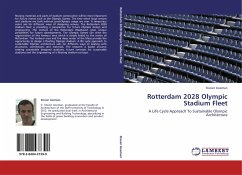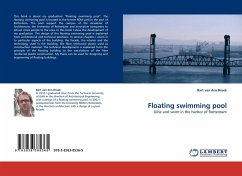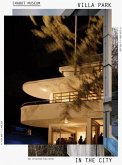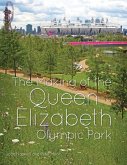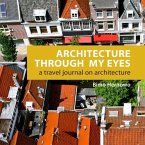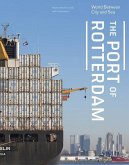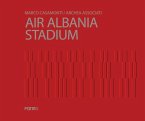Reusing materials and parts of stadium construction will be more important for future events such as the Olympic Games. The time when large venues and stadiums are built without post-Olympic usage are over. A temporary event ask for different ways of designing venues. The Rotterdam 2028 stadium fleet is providing a perspective for future Olympic design and engineering. The context of the Rotterdam Waalhaven gives unique possibilities for future developments. The Olympic Games can drive the regeneration of this harbour area which is closely linked to the centre of Rotterdam. The harbour area and the deep water of the Maas provide the opportunity to design a floating Olympic stadium. A life cycle approach to sustainable Olympic architecture asks for different ways of dealing with structures, connections and materials. The research is based around; existing sustainable designed stadiums, future concepts for sustainable stadiums and the engineering of a floating stadium concept.

